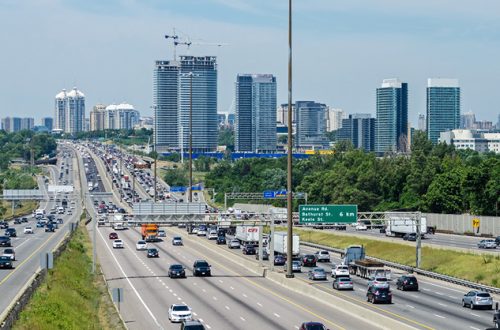As mentioned in our recent blog post about OSPE’s Annual General Meeting on May 3, 2016, the society has proposed bylaw changes in order to fulfill one of the goals of our five-year Strategic Plan – to become the association of choice for the entire engineering community in Ontario.
OSPE’s Board Development and Strategic Planning Committee brought forward the motion to amend Bylaw No.2. The proposed amendment does not change the criteria of OSPE’s membership categories, rather, it serves to update the names of the membership categories in order to more accurately define the groups we represent.
OSPE’s mandate is to serve the needs of all engineering professionals – those who have graduated from an accredited engineering program, whether they go on to pursue licensure or not.
To foster a healthy discussion, encourage questions and facilitate a vote on the proposed adjustments, all members directly received information on the proposed changes as part of their voting packages. All materials for the AGM were also posted on the registration page six weeks prior to the event, including a direct link to the proposed Bylaw changes and a Q&A document addressing frequently asked questions on the proposed changes to Bylaw No.2.
There were a number of questions and comments raised during the AGM – some of which are listed with answers below. For now, the vote has been postponed and the committee will review the proposed changes with consideration of the suggestions raised during the AGM. We encourage you to provide additional comments and questions on this post.
Why is OSPE changing its membership categories?
OSPE is the only engineering association in the province that is mandated to serve the needs of the entire engineering community, including Professional Engineers, engineering professionals, graduates, and students.
We haven’t changed the criteria of our membership categories, rather, we are updating the names of our membership categories in order to more accurately define the groups we represent. OSPE is proposing that “Associate” members be called “Engineering Professional” members, and “Professional” members become “Professional Engineer” members.
How is OSPE changing the composition of its Board of Directors?
OSPE’s Engineering Professional members will now be eligible to serve on the Board of Directors. Engineering Professional members will have full voting rights, including the right to vote for the election of directors and the right to nominate members for election to the Board.
OSPE’s Board will continue to be composed of 12 voting directors, and a minimum of seven of those directors must be Professional Engineers, instead of all 12.
OSPE must allow Engineering Professional members who do not have their P.Eng. designation to serve on the Board of Directors in order to ensure the leadership and strategic direction of the Society serves all of its members. Engineering professionals who went on to get other degrees (such as legal and financial) can lend their new competencies to round out our Board.
Why is OSPE making this change now?
The Board Development and Strategic Planning Committee brought these updates forward on May 3, 2016 at OSPE’s Annual General Meeting so that members could hear about the changes as a group, ask questions and vote on the proposed adjustments.
OSPE is bringing the change forward to fulfill one of the goals of the Society’s five-year Strategic Plan, which is to become the association of choice for all engineers and engineering professionals in Ontario.
How are Professional members reacting?
Professional Engineers understand the importance of their advocacy association. They also know that OSPE is the voice of the entire engineering community.
Even though roughly 70% of their fellow engineering graduates do not pursue licensure, Professional Engineers know that their former classmates have acquired a solid background in problem solving and critical thinking skills, which make them important contributors to Ontario’s economy, no matter where their careers take them.
At OSPE’s AGM, most engineers who provided verbal comments to the floor said they agreed with OSPE’s intention to become more clearly all-inclusive of the engineering community. However, concerns were also raised about how Professional Engineer and engineering professional might be confused by the public.
Won’t the term “engineering professional” be confusing to the public?
The term “engineering professional” is not meant to be used as a job title – just a membership category. It is a way for OSPE to describe a group of individuals who have acquired a solid background in problem solving and critical thinking skills, which make them important contributors to Ontario’s economy, to still identify with the engineering profession.
The term “professional” is used to describe a number of professions, for example, health professional, communications professional, legal professional etc. It is not meant to replace the term Professional Engineer, which is restricted by law and comes with a P.Eng. designation.
Does OSPE encourage engineering professionals to get their P.Eng. designation?
OSPE always encourages all engineering professionals to pursue licensure through PEO. We offer assistance for those eligible to get their licence through access to various programs and professional development courses to help them succeed. The Society hosts free monthly webinars to walk members through the steps of PEO’s application process and discuss the details of five courses the OSPE offers to support individuals as they work their way towards obtaining their P.Eng. licence.
Why does OSPE want to represent all engineers and engineering professionals in Ontario?
OSPE encourages all Ontario youth to study engineering at the post-secondary level and to consider engineering as a career. However, only about 30% of engineering graduates go on to pursue licensure.
We recognize that many engineering graduates go on to work in industries or fields where their work is not recognized or required to get licensure.
For those in emerging disciplines not already recognized by PEO, OSPE wants to work with these individuals to provide the required information to PEO’s Emerging Disciplines Task Force, so that these individuals can become Professional Engineers.
For those working in industries where the P.Eng. designation is not required (either through the industrial exception or the personal exception), we want to demonstrate the inherent value that the P.Eng. designation brings personally and professionally to this member.
OSPE represents all engineering professionals – people who have graduated from an accredited engineering program – whether they go on to pursue licensure or not, because we recognize and promote that the problem solving and critical thinking skills acquired with an engineering degree can be applied to a variety of industries that ultimate contribute to Ontario’s economy.
What other questions or comments do you have in regards to these bylaw changes?
Will you vote yes or no to changing OSPE’s membership categories? Why?





Comments (6)
The goal of increasing the number of OSPE members should not be at the cost of a clear definition of a Professional Engineer. A committee charged with the task of building a larger membership base is trying to change category names which can easily be confused by the general public.. I think the committee needs to rethink how they can achieve their mandate without making an unlicensed engineer feel like they will get value from membership. The new category names are too similar and confusing. I strongly urge the members and leaders of OPSP to reject this proposal and think of other ways to encourage unlicensed engineers to join. I do not support this change.
Thank you for your comment, Donald. We are in the process of collecting member feedback to bring back to our Board Development and Strategic Planning Committee for further deliberation on the subject. We appreciate you taking the time to share your thoughts with us.
I am not sure why the term Engineering Professional continues to be used in communications when there was a clear objection to it’s use by OSPE members at last week’s AGM.
As part of the Board Development & Strategic Planning deliberations process on this subject, I would recommend, if it has not already been done. that the committee take the time to write a letter to both PEO and Engineers Canada clearly requesting their position on OSPE’s use of the term “Engineering Professional” and how OSPE will use it. My understanding of the rational behind the change was that this new membership category would be used internally at OSPE and those in this membership category would be discouraged from using it on their business cards or Linkedin profiles. This is a communications issue. As one member brought up at the AGM, Engineers Canada may have the trademark rights for “Engineering Professional”. Also, PEO regulates under the Professional Engineers Act and the term Engineer or anything leads the public to believe an individual is practicing engineering is under their purview. If PEO can’t advise, who can? If PEO and Engineers Canada respond positively to OSPE’s letter, OSPE members should have not issue when the by-law amendments are brought back to the membership to be ratified. As my parents said to me, “always do your homework” & “get things in writing”.
Hi Marilyn, thank you for your comments. We respect your concerns and are engaging Engineers Canada and further legal counsel regarding the terminology.
With regards to using the term “engineering professional” on our website – although we heard concerns from some at our AGM, we have also had positive support regarding the term. Our intent of recognizing the contributions that those with an education in engineering make to our profession is welcome. In addition to the consultation efforts of the Board Development and Strategic Planning Committee regarding this, OSPE had two members of PEO’s enforcement group come to present to all OSPE staff about the way the term engineer and Professional Engineer is misused in Ontario. They let us know that OSPE’s use of the term “engineering professional” was not a concern.
As mentioned above, the term “engineering professional” is a way for OSPE to describe a group of individuals who have acquired a solid background in problem solving and critical thinking skills acquired through their engineering education, so they will still identify with the engineering profession. The term “professional” is used widely to describe a number of groups of people with varying qualifications within a profession, like health professionals, communications professionals, legal professionals, etc.
OSPE’s Board of Directors will be reviewing all comments and legal opinions, and will be engaging in discussions with our various partners on the provincial and national level before coming back to the membership with the proposed by-law changes. We look forward to sharing those findings with you.
Thank you for all your comments and input. Yes, we will take in all inputs and work towards an approach that meets with our broad membership’s approval. Regards, Michael Monette, President & Chair, OSPE
Likening “Engineering Professionals” to Health Professionals or Legal Professions is misleading. Most Health Professionals are licensed, that is, regulated in some way (Dentists, Nurses, Lab Techs, Occupation Therapists, etc). Paralegals in the Legal Profession are now regulated. Engineering Graduates who are not licensed are not regulated and therfore do not belong to any “profession” to my knowledge. The argument above is weak and does not advocate for those that made the effort to become licensed.
Michael should also sign his name with a P.Eng. 😉
Leave a Comment